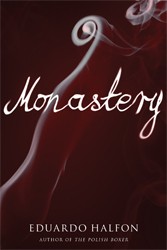By
– August 30, 2011
Jeremy Ben-Ami, founder of the dovish Israel lobby J Street, sets out his beliefs and goals in this part manifesto, part autobiographical work. He is convinced that “if things don’t change pretty soon, chances are that the two-state solution to the Israeli-Palestinian conflict will slip through our fingers.” The author tells the story of his family and its ties to Israel. His parents and grandparents were “pioneers, builders and ultimately fighters for the cause, for their family and for their people.” Ben-Ami was born in the U.S. in 1962 and has had a life-long interest in the Jewish state. As a professional Democratic campaign strategist he details how the issue of Israel has become a political football in American politics. He asks, “how did it come to pass that major national organizations of the American Jewish community had come to present only right-of-center views on Israel to candidates for president and other federal offices?”
Ben-Ami claims that those American Jews for whom support for Israel is the most important issue to vote on represent only 8% of the American Jewish community and yet “their voices dominate the public debate and the perception of where the community stands.” The narrative details how young American Jews are becoming alienated from Israel and that only vibrant dissent and criticism will help bring back American Jews to Israel and also encourage America to put pressure on Israel to end the conflict.
The author’s prognosis is not original. Others, such as Peter Beinart, have been making similar arguments recently. His castigating of pro-Israel lobbying groups for shutting down the debate sets up a straw man that he then easily breaks down by claiming that his group is offering a new voice. Ben-Ami claims these critical voices are “blacklisted” or subjected to “politics perfected by Joe McCarthy.” Yet his book provides evidence to the contrary, including how J Street has expanded to include 600 rabbis, 170,000 supporters, and a $7 million budget. While it presents convincing evidence that young American Jews are alienated from Israeli policies, the author doesn’t explain how J Street will achieve anything but cementing their criticism of Israel. Notes.
Ben-Ami claims that those American Jews for whom support for Israel is the most important issue to vote on represent only 8% of the American Jewish community and yet “their voices dominate the public debate and the perception of where the community stands.” The narrative details how young American Jews are becoming alienated from Israel and that only vibrant dissent and criticism will help bring back American Jews to Israel and also encourage America to put pressure on Israel to end the conflict.
The author’s prognosis is not original. Others, such as Peter Beinart, have been making similar arguments recently. His castigating of pro-Israel lobbying groups for shutting down the debate sets up a straw man that he then easily breaks down by claiming that his group is offering a new voice. Ben-Ami claims these critical voices are “blacklisted” or subjected to “politics perfected by Joe McCarthy.” Yet his book provides evidence to the contrary, including how J Street has expanded to include 600 rabbis, 170,000 supporters, and a $7 million budget. While it presents convincing evidence that young American Jews are alienated from Israeli policies, the author doesn’t explain how J Street will achieve anything but cementing their criticism of Israel. Notes.
Abraham J. Edelheit is an associate professor of history at Kingsborough Community College (CUNY) and the author, co-author, or editor of eleven books on the Holocaust, Zionism, Jewish and European history, and Military affairs. His most recent publication appeared in Armor magazine, the official journal of the US Army Armor and Cavalry Command.





